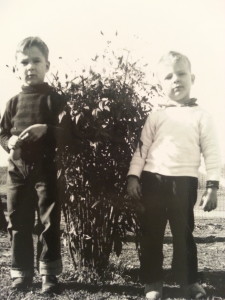Family.
Few ‘stand-alone’ words carry greater force in stirring emotions. For some, all manner of feelings can lie poised to erupt just at the mention of “family life”. A lot of them are feelings most of us know, springing as they do from memories out of our past. Stirring emotions ranging from cozy and warm to jagged and piercing, depending upon relationships enjoyed. Or not enjoyed.
While writing this, fresh news came of the death of a dear friend’s father. My friend, Amit – receiving word of his dad suddenly falling ill bought air tickets. He reached his native India from the U.S. shortly before the patriarch’s passing. The father and son shared a close bond. Reaching the homeland to console his mother, Amit now joins her in the mourning.
Family ties run deep. Few narratives in all the world’s literature bring the truth home so powerfully as Jesus’ story of the lost (prodigal) son. And it is the Luke 15 parable – introduced, contemplated and discussed – that rocked the world of a long parade of students. The routine had grown as predictable as the Rocky Mountain snows for the diverse groups, day after day and year after year, each morning just after breakfast. Bear Trap’s seven or eight Family Groups – each comprised of eight or so sharp college students of varying nationalities – combed through the passage with keen interest. Outright astonishment met most of them in the end, as the narrative portrayed outrageous selfishness colliding head-on with (a father’s) outrageous affection.
Campus ministers facilitating the group discussions were struck by notable reactions by the internationals. Hardly ever was there a student whose conscience was stung over the sin of brazen hedonism and wasteful living characterized by the story’s younger brother. However, many of these scholars from abroad (well-behaved, performance-focused) resonated with the conflicting struggles of the elder sibling. He’s the one who kept his nose clean, yet carried just as much ‘heart-distance’ toward the father as did the scandalous kid brother.
in Family Group time we were brought to wrestle with matters of the heart. Discovering in the process that we fractured souls, all of us, come draped in a collection of ill-fitting garments of our own tailoring.
©2024 Jerry Lout


